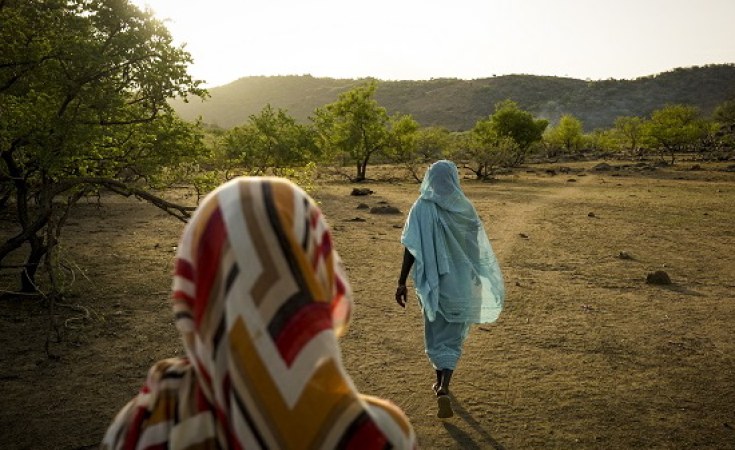Sudan Media Forum Joint Editorial — Thousands of women and girls have been living in areas of confrontation between the Sudan Armed Forces (SAF) and the Rapid Support Forces (RSF) for 18 months of devastating war. Some of them work in the service of these forces, while others were subjected to violations that their bodies could not bear, and they lost their lives.
Various reports speak of patterns of sexual violence, enforced disappearance, and physical assaults by warring forces in areas under their control, including murder, theft, looting, rape, and sex for food.
A report by the Strategic Initiative for Women in the Horn of Africa (SIHA) in late July documented more than 250 cases of sexual violence across the country since the outbreak of the war, including 75 cases in El Gezira between December, when the RSF took control of most of the state, and April.
The Anti-Violence Against Women Unit of the federal Ministry of Social Affairs stated in July last year that the documented rapes likely represent only two per cent of the total cases.
Sex for work
Following the occupation of most parts of Khartoum by RSF paramilitaries since the outbreak of the war between the Sudanese Armed Forces (SAF) and the RSF in mid-April last year, K and her four children had to bear the pain and burden of the reality imposed by the paramilitaries because she did not have the money to leave the El Azhari area in southern Khartoum where she works as a tea seller.
She told Sudan Tribune that she was forced to have sex several times with a number of RSF soldiers, to allow her to work selling tea near her residence.
She insists that everything she did was because the war did not stop, and blames the SAF leaders who, she says, refuse to negotiate and whose families enjoy normal lives outside Sudan while besieged women like her pay a heavy price to stay alive.
"They they rape us while we do everything for them. We sell tea, we provide them with food, we cook for them. We do everything to ensure the safety of our children and families and to survive, which has become hell," she added.
Expectations of the worst in the future
The director of the Anti-Violence Against Women Unit, Seleima Ishag, confirmed to Sudan Tribune that the unit receives information from people in specific areas which it does not share, "because making the information public puts their lives at risk".
"The lack of communication and the collapsed health system together also caused a lack of information about the situation of women and girls in specific areas," she said.
"There are areas that people cannot leave, so we do not get information about them and the violations that people have been subjected to, and service providers in the areas are not present to help provide the information."
Ishag expects that "incidents [of sexual violence] will occur that are worse than those we witnessed before, stressing that during the escalation of battles, everyone is exposed to losing lives, while services become impossible and the burdens of many things on people could increase.
She stressed that the level of intensity of the clashes or not does not affect people much because they live in a tragic situation, and she continued: "The White Nile State, for example, does not witness clashes, but it is besieged, and this casts a shadow over girls and does not allow the opportunity to know information, and it is difficult for services to be simple, and even the needs of women remain non-existent, even areas that do not witness clashes may be greatly affected, including the areas adjacent to them."
Missing
Muzamil Omar, a young man, is only one of thousands of people who went missing during the war. He disappeared on January 25 in Hattab in Khartoum Bahri (Khartoum North). His brother told Sudan Tribune that they have been searching for him for months.
According to a government official, at least 3,000 men and women disappeared, but likely many more went missing as there are no accurate statistics so far.
The source told Sudan Tribune that there many cases remain undocumented due to the circumstances that prevent relatives of a missing person from reporting them. He expects "the real numbers will be shocking".
Lawyer Osman El Basri, a member of the Sudanese Group for Victims of Enforced Disappearance, told Sudan Tribune that the number of reports of missing people and arbitrary detentions increased with the intensification of the battles. "One party began accusing the residents of any new area conquered, of cooperating with the other party."
El Basri described the disappearance as "a catastrophe" and said that it happened that entire families disappeared at the hands of one of the parties to the conflict. He also cited "the known difficulties in reporting and documentation due to families not knowing how to report, the interruption of communications, etc."
After obtaining the approval of the Public Prosecution, the Sudanese Group for Victims of Enforced Disappearances filed criminal cases concerning 451 missing persons since the outbreak of the war in mid-April 2023.
This report is published simultaneously on the platforms of media and press institutions and organisations that are members of the Sudan Media Forum


